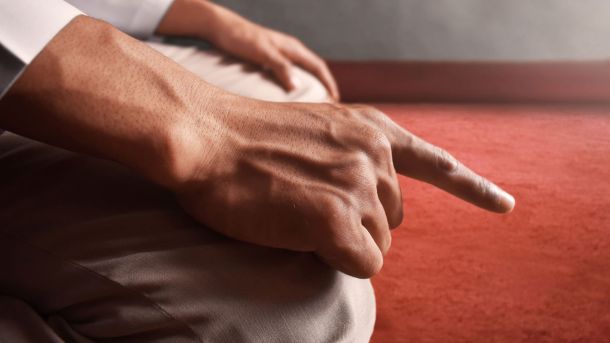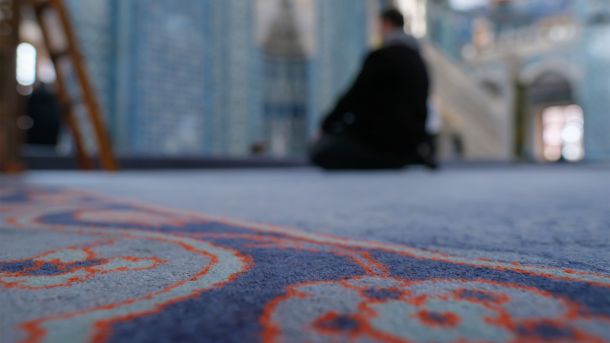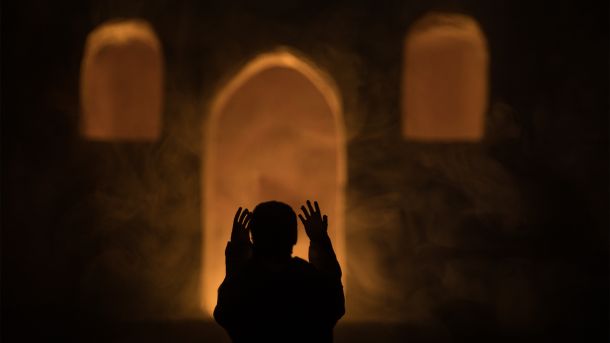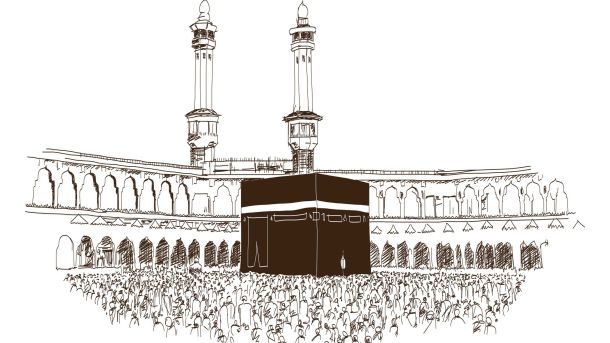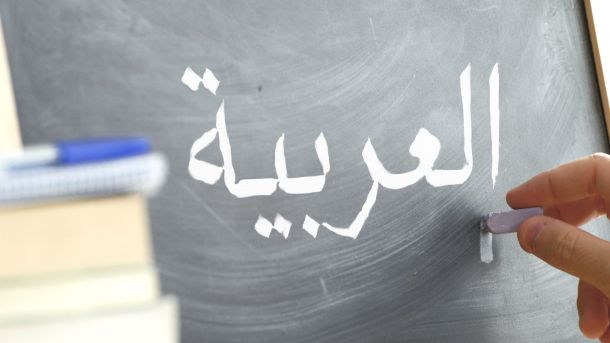News Archive
Jun 22, 2007
When Is the Time for ʿIshāʾ Prayer Over
In reality the ḥadīth is not legislating the times of the prayers, but it is an open disapproval of knowingly and consciously delaying the prayers from their times.
Imām Muḥammad Nāṣir al-Dīn al-AlbānīSayyid Sābiq says in Fiqh a-Sunnah, in his section on the time of ʿIshāʾ Prayer:
‘‘…And as for the time of ʿIshāʾ Prayer then it extends until the time of Fajr, and this is understood from the ḥadīth of Abū Qatādah who said that the Prophet (ﷺ) said, “Negligence (regarding the prayer) is not from oversleeping, but negligence is found with the one who does not pray (while consci…
Jun 22, 2007
Pushing Back the One Who Passes in front of the One Who Is Praying
This was done by Abū Saʿīd to the slave who wished to pass in front of him – he pushed him back by pushing his chest – then when the slave returned he pushed him back with more force as occurs in al-Bukhārī and others.
‘Nayl al-Awṭār’ [3/5-6] of with slight summary.
From Ibn ʿUmar, that the Prophet (ﷺ) said, “when one of you is praying then do not let anyone pass in front of him, and if he refuses then fight him for indeed he has a companion [i.e. a shayṭān] with him.” Reported by Aḥmad, Muslim and Ibn Mājah.
From Abū Saʿīd who said: I heard the Messenger of Allāh (ﷺ) saying, “When one…
Jun 22, 2007
On the Placing of Hands in Prayer during Qiyām
To place them on the chest is what is proven in the Sunnah, and all that is contrary to it is either ḍaʿīf or totally baseless.
Below is a translation from ‘Tuhfatul Aḥwadhī bi sharḥ Jāmiʿ al-Tirmidhī’ by al-Mubārakfūrī, on the issue of where to place one’s hands in prayer, (vol. 2, pp. 74+)
[Start of Quote from al-Tirmidhī]
“Chapter: what occurs with regards to placing the right hand upon the left in prayer
‘….and some of them were of the opinion that you place them above the navel, and some below the navel. And all of this was flexible according to them.’
[End of quote from al-T…
Jun 22, 2007
On the Raising of Hands during Prayer
And the answer is that there is no evidence in it for forbidding raising of the hands at specific places in the prayer and at specific times, and that is at the rukuʿ and rising from it.
Al-ʿAllāmah Muḥammad ibn ʿAbd al-Raḥmān al-Mubārakfūrī
On Raising the Hands in Prayer (Part 1)
[Start of quote from At-Tirmidhī ‘…’ indicates the omission of isnād]
Chapter 189 – Raising Hands at Ruku’
255: …From Saalim from his father (ibn ʿUmar) who said,
“I saw the Messenger of Allāh ﷺ raise his hands up to his shoulders when he started the prayer, and when he went into ruku` and when he raised his h…
Jun 22, 2007
Humility in the Prayer
So if the heart is submissive, the eyes, ears, head, face, and the rest of the limbs are submissive; the same goes for whatever emanates from them, to the extent that it reaches the speech
al-Ḥāfiẓ Ibn Rajab
Jun 22, 2007
The Status of the Arabic Language in Islām
As for becoming accustomed to talking to one another in a language other than Arabic, which is the symbol of Islām and the language of the Qurʾān, so that this becomes a habit in the land, with one’s family and household members, with one’s friends, in the marketplace, when addressing government representatives or authority figures or when speaking to people of knowledge, undoubtedly this is makrūh (disliked), because it involves being like the non-Arabs, which is makrūh, as stated previously.
Hence when the early Muslims went to live in Syria and Egypt, where the people spoke Byzantine Greek…
Jun 22, 2007
The Enslavement of the Heart
And know that al-ʿIbādah (worship) has four principles, and they are, [i] ascertaining that which Allāh and His Messenger love and are pleased with, establishing that with [ii] the heart, [iii] the tongue and [iv] the limbs. So al-ʿubūdiyyah is a comprehensive term for all of these stages.
Shaykh Sulaymān al-Sulaymī
I. True Freedom
Without doubt, we all hate the slavery and subjugation we see upon the earth today. That being the subjugation of men over men, where some subjugate others, humiliating them and trampling over them. This is indeed hated. However, what we will talk about today is d…
Jun 21, 2007
The Inner Secrets of Fasting
The Imām, Ibn Qudāmah al-Maqdisī (رحمه الله) mentioned:1 Know, that in the fast (Ṣawm) is a special quality that is not found in anything else. And that is its close connection to Allāh, such that He says:
“The Fast (Ṣawm) is for Me and I will reward it.”2
This connection is enough to show the high status of fasting. Similarly, the Kaʿbah is highly dignified due to its close connection to Him, as occurs in His statement:
“And sanctify My House.”3
Indeed, the fast is only virtuous due to two significant concepts:
The First: It is a secret and hidden action, thus, no one from the creation…
Jun 21, 2007
Important Lessons from Ramaḍān
Allāh -The Most High – said:
شَهْرُ رَمَضَانَ الَّذِي أُنزِلَ فِيهِ الْقُرْآنُ هُدًى لِّلنَّاسِ وَبَيِّنَاتٍ مِّنَ الْهُدَىٰ وَالْفُرْقَانِ ۚ فَمَن شَهِدَ مِنكُمُ الشَّهْرَ فَلْيَصُمْهُ ۖ ﴿١٨٥﴾
“The month of Ramaḍān in which the Qurʾān was revealed, a guidance for mankind and clear proofs for the guidance of the Criterion between right and wrong. So whosoever of you sights the crescent for the month of Ramaḍān, he must fast that month.”
[al-Baqarah, 2:185].
Allāh’s Messenger (ﷺ) said:
“Islām is built upon five: Testifying that none has the right to be worshipped except Allāh and the Muḥamm…

